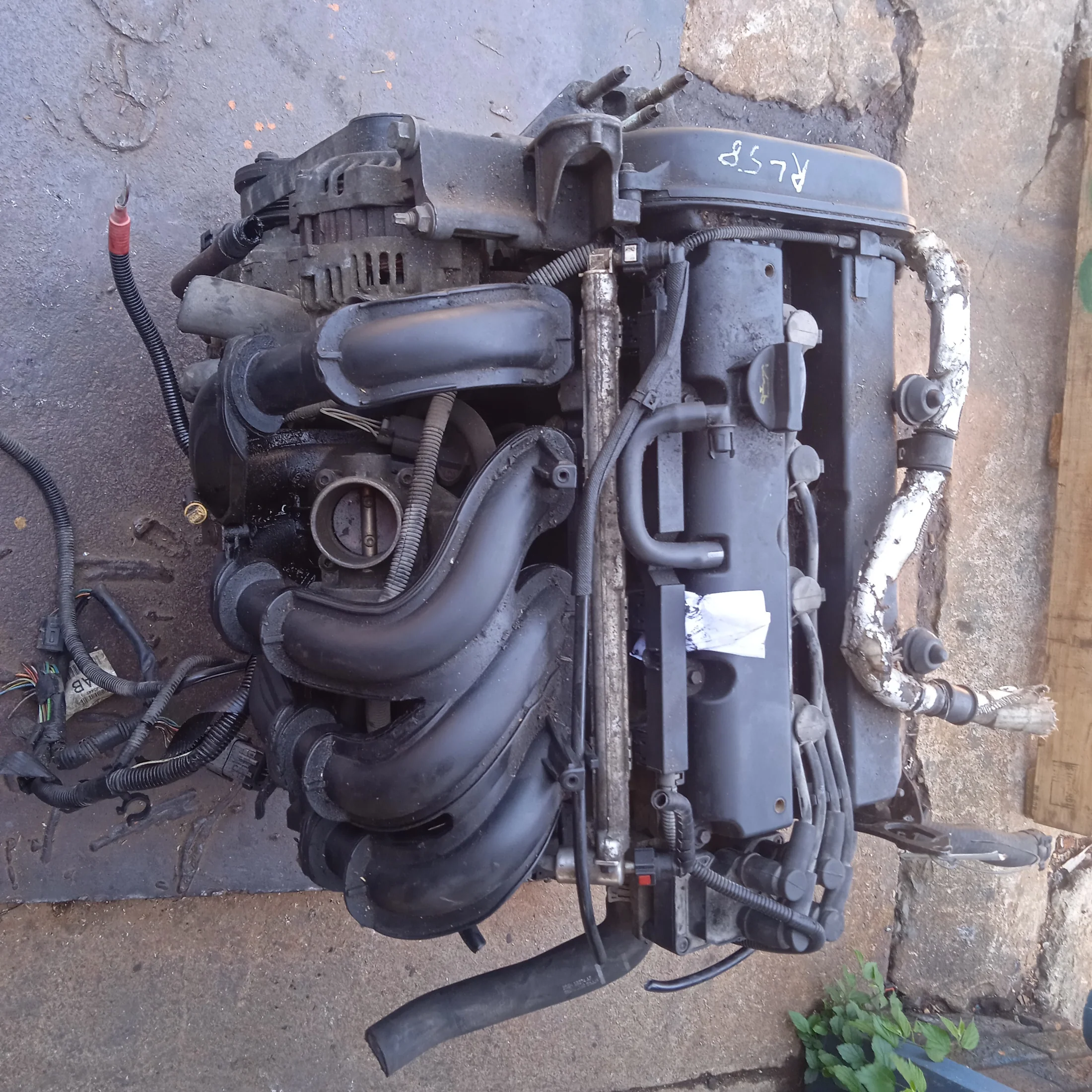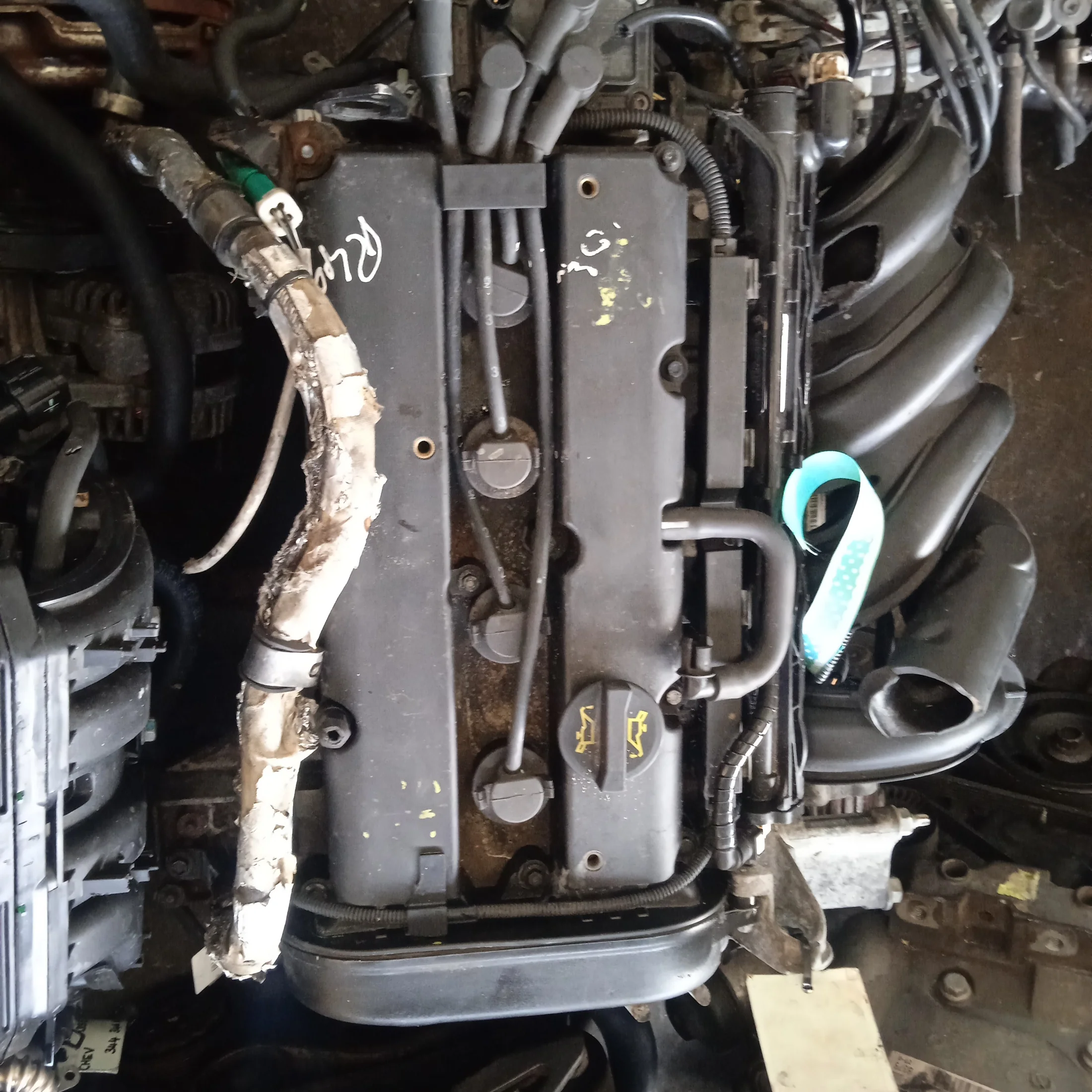How a Ford Fiesta Engine Tune-Up Can Improve Your Car’s Performance
How a Ford Fiesta Engine Tune-Up Can Improve Your Car’s Performance
Blog Article
The Future of Engines: Advancements Driving Sustainable Power Solutions
As the automobile sector navigates the necessary change towards sustainability, the future of engines is significantly specified by groundbreaking technologies. Electric engine advancements, alongside appealing advancements in hydrogen gas cells and biofuels, are improving the landscape of power solutions.
Electric Engine Developments
The development of electric engine advancements represents a crucial change in the aerospace and auto sectors, driven by the urgent need for sustainable alternatives to fossil fuels. This shift is identified by substantial advancements in battery innovation, power electronic devices, and electrical motor layout, which collectively improve the efficiency and efficiency of electric engines.
Current innovations have actually caused the production of lighter, much more energy-dense batteries, such as lithium-silicon and solid-state batteries, which guarantee longer arrays and shorter charging times. In addition, improvements in electrical motor performance, such as using permanent magnets and progressed cooling systems, enable electrical engines to operate efficiently under varying problems. These enhancements not just enhance car efficiency however also add to a decrease in overall power usage.
Furthermore, the combination of sophisticated software formulas has maximized energy management in electrical cars, enabling for regenerative braking and predictive billing approaches. As makers progressively welcome electrical propulsion, the auto and aerospace markets are experiencing a standard change in the direction of greener modern technologies. This evolution not just fulfills regulative demands but also straightens with consumer choices for eco-friendly transport services, strengthening electrical engines as a foundation of future lasting mobility.
Improvements in Biofuels
As the automotive and aerospace sectors increasingly prioritize sustainable power resources, advancements in biofuels emerge as a complementary option to electrical engines. Biofuels, originated from organic products such as plants, waste, and algae, offer an innovative opportunity for lowering greenhouse gas emissions and reliance on nonrenewable fuel sources.
Current study has concentrated on enhancing the performance and sustainability of biofuel production. Second-generation biofuels make use of non-food feedstocks, reducing competitors with food supply and decreasing environmental effect. Additionally, advancements in artificial biology have actually made it possible for the engineering of bacteria to produce biofuels better, bring about higher yields and lower production expenses.
Additionally, the development of drop-in biofuels allows for seamless assimilation right into existing framework, making it possible for a smoother change for sectors commonly based on nonrenewable fuel sources. ford fiesta engine. These fuels can be used in current engines without adjustments, promoting their fostering throughout different industries
Investments in biofuel innovation, along with helpful plans, are vital to drive technology and scalability. As the international neighborhood seeks to deal with climate adjustment, biofuels use a pragmatic, prompt option that aligns with the overarching objective of sustainability in transportation and aeronautics.
Hydrogen Fuel Cell Technology
An expanding number of scientists and companies are discovering hydrogen fuel cell technology as a feasible alternative to standard power sources in transport and energy systems. This modern technology converts chemical power from hydrogen into power with an electrochemical reaction, with water as the only by-product, making it an environmentally friendly alternative.
The core of hydrogen fuel cells is the gas cell stack, where hydrogen particles are split right into protons and electrons. The circulation have a peek here of electrons produces power, while protons relocate through a membrane layer to integrate with oxygen from the air, forming water. This procedure results in high performance and reduced exhausts, placing hydrogen gas cells as an important gamer in the change to sustainable power.
Significant innovations have been made in enhancing the sturdiness and efficiency of fuel cells, together with reducing expenses via innovative manufacturing methods. The advancement of hydrogen manufacturing methods, such as electrolysis powered by sustainable energy resources, boosts the sustainability of the total system. As framework for hydrogen refueling expands and production methods become much more effective, hydrogen fuel cell innovation holds great guarantee for decarbonizing different industries, including durable transport and stationary power generation.
Hybrid Systems and Their Impact
Crossbreed systems stand for a considerable development in sustainable engine technology, combining standard interior combustion engines with electrical propulsion to enhance energy efficiency and lower exhausts (ford fiesta engine). This double approach permits lorries to use both power sources, enabling better versatility in energy intake and decreasing reliance on fossil gas

Along with environmental benefits, crossbreed systems supply customers a sensible change towards fully electrical lorries. They alleviate array stress and anxiety by incorporating the comfort of gasoline with the benefits of electric propulsion, making them an attractive alternative for a broader audience. As suppliers buy hybrid technology, the growth of advanced battery systems and lightweight products continues to boost performance. In general, crossbreed systems represent an essential step in the direction of accomplishing lasting transportation and addressing the immediate need for ecologically friendly power options.
The Role of AI in Engine Style
Leveraging innovative algorithms and maker understanding techniques, the auto industry is progressively incorporating expert system (AI) right into engine design processes. AI boosts the efficiency and efficiency of style by assessing vast datasets to determine ideal arrangements and performance parameters. This capability enables designers to replicate numerous operating conditions and predict engine habits under several situations, dramatically reducing the time and price connected with conventional prototyping techniques.
In addition, AI facilitates the development of sophisticated materials and burning procedures customized for sustainability. By enhancing gas efficiency and reducing discharges, AI-driven layouts straighten with international campaigns targeted my site at decreasing the carbon footprint of automotive engines. Machine discovering formulas can likewise anticipate maintenance needs, causing boosted dependability and durability of engine components.
In Addition, AI contributes in the assimilation of electrification innovations, such as hybrid systems, where it can maximize battery monitoring and energy recovery procedures. As the market moves in the direction of more sustainable power remedies, the function of AI in engine design comes to be progressively important, driving innovation and boosting the performance of future engines. Inevitably, the partnership between AI and engine layout declares a new period of smarter, cleaner, and a lot more effective auto modern technologies.

Verdict
To conclude, the future of engines is being formed by a merging of innovative technologies that prioritize sustainability. Electric engine improvements, biofuel developments, hydrogen fuel cells, and crossbreed systems jointly add to a considerable decrease in exhausts and ecological influence. In addition, the assimilation of expert system in engine layout boosts performance and efficiency. These transformative remedies emphasize a dedication to producing a cleaner, a lot more sustainable automobile landscape, ultimately benefiting both culture and the setting.
Electric engine innovations, together with promising developments in hydrogen gas cells and biofuels, are improving the landscape of power options. Furthermore, improvements in electrical motor effectiveness, such as the use of irreversible magnets and progressed cooling systems, make it possible for electrical engines to operate properly under differing conditions. By maximizing fuel efficiency and decreasing discharges, AI-driven designs straighten with global campaigns aimed at lowering the carbon impact of automotive engines. As the sector moves in the direction of more lasting power services, the duty of AI in engine style comes to be progressively vital, driving advancement and enhancing the efficiency of future engines. Electric engine advancements, biofuel growths, hydrogen fuel cells, and crossbreed systems jointly contribute to a substantial reduction in exhausts and environmental effect.
Report this page